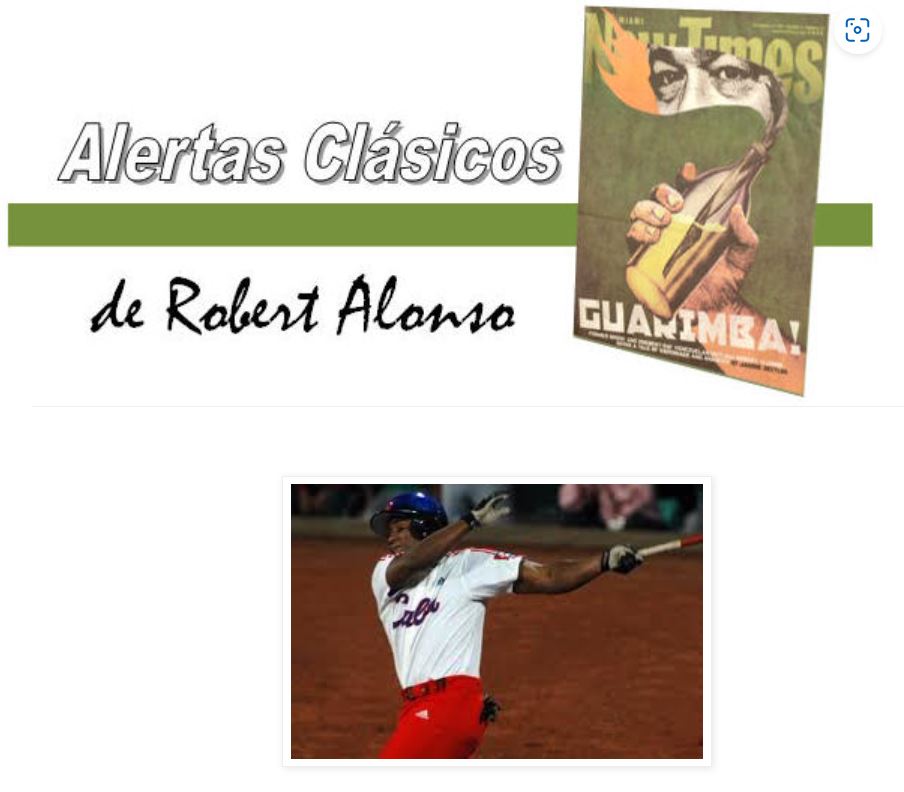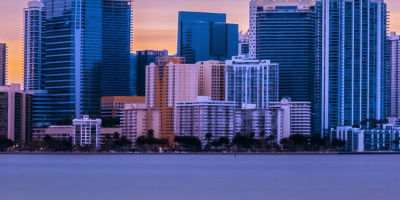
x
Invoking a policy of “solidarity with ideological pluralism” in the American subcontinent, the administration of Rafael Caldera practiced détente with Castro’s Cuba although it never managed to restore diplomatic relations broken in 1959, an honor that fell to the never well considered Carlos Andrés Pérez, one of the most “honest” presidents that gave the homeland of Bolívar.
At Christmas of ’73 – as if to get used to the presence of Castroists in Venezuela – the Caldera government invited the Cuban baseball team to a friendly match with the Venezuelan National Team at the University Stadium in Caracas. It had been 14 years since the Venezuelan had seen a Castroists walking “freely” through Venezuela and we, who had been exiled in this country for 12 years, were astonished. “End of the world!” shouted “Yoya” de Cárdenas de Smith, my co-worker at Distribuidora Rialón, my father’s representation company: “this is communism!” she finished off in one of those picturesque talks we used to have, stealing the work time of my strict and productive father. I was 23 years old and the “Yoya”… a little more.
That night I received a phone call from Salvador Romaní summoning me for an “URGENT” meeting that – for Cuba and Venezuela – I could not, according to him, miss. The next morning, I asked for leave at work and showed up at the apartment of the eternal Cuban-Venezuelan anti-Castro leader. There were already a dozen young men waiting for me and eager to get into the subject. Whenever Romaní summoned us, there was “patriotic action” of greater or lesser intensity, depending on the case.
As soon as our revered leader came into the matter, we knew that the mission entrusted to us would be tremendously exciting. Two players of the Cuban baseball team would ask for political asylum and stay in Venezuela. Our mission – to come to accept it, which we always did – was to jump on the ball court and protect with our lives – if necessary – the escape of these two Cubans. The details of that almost warlike action fell to an expert in evasions, to whom Romani gave the floor.
It was a Friday night. The Cuban colony in full was already in the University Stadium, in the very heart of Caracas. There I remember having seen, among many others, Roberto Fontanillas, Aldito Ferro, Eric and Dario de la Vega, Raolito Bermúdez, Rafael Chinea, Raulito de Cárdenas… and – if my memory serves me well – Fausto Masó himself, a young man.
My group consisted of my parents, my brother Ricardo, my girlfriend Siomi (with whom I would later marry) and our co-workers in Rialón, among whom was “Yoya” de Cárdenas de Smith who had attended with her husband, the “Gran Teyo Smith” (“The Silver Wolf of Bello Monte”), now sadly deceased. All of us were with the Venezuelan tricolor flag in our hands. Mine was tied to a 1/2″ rod lined in felt, very appropriate to “protect the escape” of the two Cuban baseball players who wanted to stay in lands of freedom.
The stadium was totally packed with university communists who had come to the stands loaded with Cuban flags and posters of Che and Castro. That night promised to be one of the most exciting of the month of December of the year of Our Lord Jesus Christ 1973.
The emotion began when the Cuban entourage passed us, among which came a little girl of about 10 years, dressed in Cuban colors. It was the first time the police intervened. My father grabbed the girl by her arm and told her with tears in his eyes: “You don’t know what Christmas is, little girl…!” Of all the things an old Cuban exiled in Venezuela could have said to a Cuban girl fresh out of communism, my father had to choose that terrible sentence. It is true, the girl – who looked at him tremendously astonished – did not even know the meaning of the word. The police put order before all hell broke loose, and the “Cubans-of-Cuba” (we were “Cubans-of-Venezuela” and for the communists of the stands, “Cubans-of-shit”), took position there, far away … among the university communist rabble.
The game began. At each hit of the Venezuelan team, the hundreds of “Cubans-of-Venezuela” shouted: “Long live Venezuela, long live Simón Bolívar, long live democracy and freedom…!“, “Yoya” – with an immense and very Cuban heart – shouted: “Down with communism, down with Fidel Castro…!”
The reverse happened when it was the Cubans who put a shot: “Long live Fidel, long live Cuba!” shouted the thousands and thousands of Venezuelan communists who crowded the stadium, which collapsed every time the Castroists did something good within that game that promised to be great.
My attention was shared between that game and our “manager“, Salvador Romaní, who at his signal would indicate the moment to act. I had to take the third base and I blow out the head of the first communist who stood in front of me. I would have to break a lot of heads that night, I thought, because the place was full of communists. In all my life I had never seen so many “reds” together in one place. I hoped that Romaní had already thought about an evacuation plan, not only for the Cuban players, but for all of us, because from what I analyzed, it was going to be tremendously difficult to leave that stadium saturated with so many enemies.
The game was tied in the third inning and continued until the seventh. Romani didn’t make his signal. He had put on a Yankees cap which he would take off when the time was right. One of the two players who would escape was the pitcher, who was that night throwing fabulously. The least he could have done for his freedom was not to pitch that well… I thought. The Venezuelan team was playing really well and at the end of the seventh inning they managed their first homerun of the game, placing the team in the lead. We Cubans from Venezuela recover our faith in democracy and in God. It was not possible for that game to be won by communism. “Long live Venezuela, long live Simón Bolívar, long live democracy and freedom…!“, were our wild cries in that battle between good and evil.
Suddenly I saw Romani turning to where we were and calling us with a very conspiratorial gesture. He had received a counterorder and the mission was cancelled. We all feigned disappointment and prepared to return to our chairs to enjoy that game that now promised would be historic, as indeed it was.
Venezuela was leading three to two when we entered the ninth and final inning. The turn at bat belonged to the Cubans. We, the “Cubans-of-Venezuela” were overwhelmed. We took for granted that Cuba would be defeated in its attempt to take away from us the new homeland that we had conquered with so much pain and effort. That, more than a ball game, was a reaffirmation of our dignity as exiles. Then the unexpected happened. With two outs on, the at-bat corresponded to a Cuban player, as black as a dark night. He was not very tall but of impressive corpulence. He waited for the best ball and there was a dry, loud sound: a sound that I will never forget! The ball was rising through the right field, and I began to live the moment in slow motion.
The ball was gone, gone, gone… and left the field. I don’t know where it went, but it wasn’t surprising that it had fallen on Mount Avila… or in the Caribbean Sea. I saw my Cuban brother’s face and it was a poem. In the middle of that homerun I saw “Yoya” stood and grabbed my neck as best she could to climb dangerously in her chair. I saw her raise her arms with the fists of her big hands clasped as she cried heartbreakingly towards that common sky for both homelands: “Long live Cuba!”
The Venezuelan communists could no longer be heard, I saw Romani jumping on one leg and I – still in my slow motion – focused on that baseball player through whose veins my same blood flowed. He came running proudly from third to home. He looked me in the eye from that distance that was now shortening in our hearts and when he arrived home I saw him throw his Soviet cap with the colors of Cuba towards us, the “Cubans-of-Venezuela”.
I threw myself over the tumult with the sole and sacred mission of attaining it. I watched the cap fly and looked at him, watching my effort. When I thought I would lose it, I felt in my fingertips a soft object get entangled in them, it was the cap of my homeland! My brother had thrown it at me. He was that Cuban who put the name of my homeland on high, regardless of his ideology or mine. By touching it I had become, as if by magic, what I had always been, a “Cuban-of-Cuba” separated from my brothers by the hatred sown among us by the force of the most unthinkable evil.
The game was tied, and we went to extra inning. Now everyone brandished their own flag. Venezuelans shouting for Venezuela and Cubans – all Cubans – shouting for Cuba, as it should always have been if that eternal nightmare that divided the homeland into two batons had not fallen on our noble land.
The game ended in favor of Cuba, but Venezuela came out of it with its head held high. It had lasted fourteen innings and we would have at least thirty more years of exile ahead of us. From that night I was left with a Cuban cap made, possibly, in Russia… and an even more Cuban heart.


